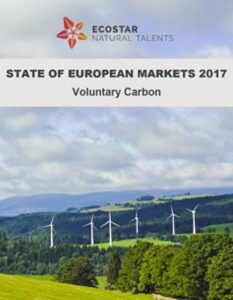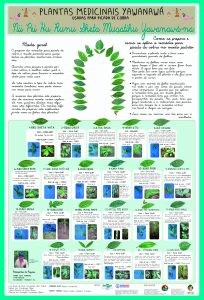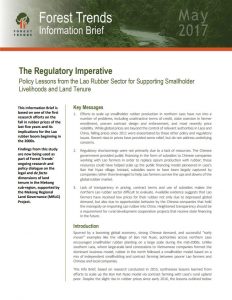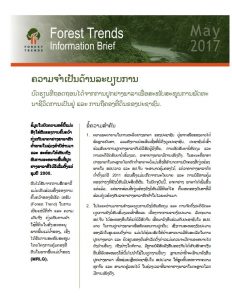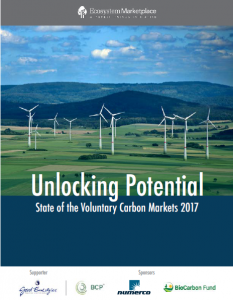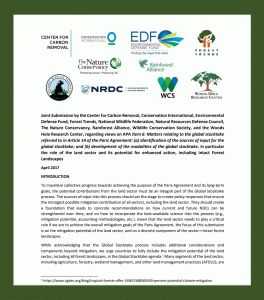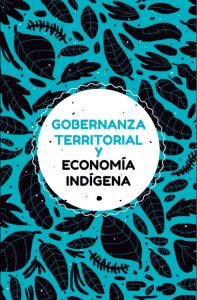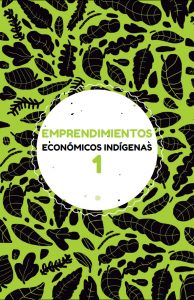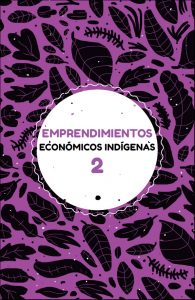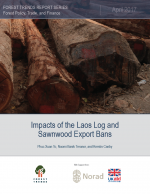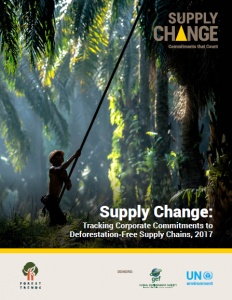State of European Markets 2017
Voluntary Carbon, Watershed Investments, and Biodiversity Offsets and Compensation
Ecosystem Marketplace, an initiative of Forest Trends, is pleased to present three original new reports, co-authored with Etifor as part of the ECOSTAR project, benchmarking for the first time the size, scope, and scale of ecosystem market mechanisms in Europe for voluntary carbon, watershed investments, and biodiversity offsets and compensation. Healthy natural habitats and sustainably […]
Yawanawa Medicinal Plants – Plantas Medicinais Yawanawá
The Yawanawa have captured their long-held botanical expertise in a new illustrated field guide that helps members of the community identify and use life-saving medicinal plants. The poster details 21 medicinal plants the Yawanawa have traditionally used to treat poisonous snake bites. Each entry features an artful botanical illustration, along with reference photos and descriptions […]
The Regulatory Imperative
Policy Lessons from the Lao Rubber Sector for Supporting Smallholder Livelihoods and Land Tenure
By Michael Dwyer, Naomi Basik Treanor - Mekong Region Land Governance Project, Forest TrendsThis Information Brief is based on one of the first research efforts on the fall in rubber prices of the last five years and its implications for the Lao rubber boom beginning in the 2000s. Findings from this study are now being used as part of Forest Trends’ ongoing research and policy dialogue on the […]
Dependent Documents
ຄວາມຈຳເປັນດ້ານລະບຽບການ
ບົດຮຽນທີ່ຖອດຖອນໄດ້ຈາກການປູກຢາງພາລາເພື່ອສະໜັບສະໜູນການພັດທະນາຊີວິດການເປັນຢູ່ ແລະ ການຖືຄອງທີ່ດິນຂອງປະຊາຊົນ.
By Mike Dwyer, Naomi Basik Treanor - Mekong Region Land Governance Project, Forest TrendsEmail Signup
Subscribe to any of Forest Trends’ mailing lists to keep up with the news, publications, and events that interest you.
Having Trouble?
If you experience any technical difficulties on our site, please contact Genevieve Bennett, Communications Manager.
State of the Voluntary Carbon Markets 2017
Unlocking Potential
By Kelley Hamrick, Melissa GallantAs of 2016, offsets equivalent to 1.1 billion metric tonnes of carbon dioxide emissions (BtCO2e) have been transacted voluntarily – through sales to governments, companies, and individuals as well as intermediary brokers – according to the latest annual State of Voluntary Carbon Markets report from Forest Trends’ Ecosystem Marketplace. Entitled “Unlocking Potential,” the new report and […]
UNFCCC Submission Regarding Views on APA Item 6
Views Regarding the Role of the Land Sector and its Potential for Enhanced Action, including Intact Forest Landscapes
Joint Submission by the Center for Carbon Removal, Conservation International, Environmental Defense Fund, Forest Trends, National Wildlife Federation, Natural Resources Defense Council, The Nature Conservancy, Rainforest Alliance, Wildlife Conservation Society, and the Woods Hole Research Center, regarding views on APA Item 6: Matters relating to the global stocktake referred to in Article 14 of the […]
Territorial Governance and Indigenous Economy
Gobernanza Territorial Economía Indígena
Territorial governance is the first step in promoting an indigenous economy and in ensuring that the relationship between the market and the communities does not affect traditional cultures. Territorial governance consists of three components all based on the communities’ life plans: cultural, economic and political governance. La gobernanza territorial es el primer paso para proteger […]
Indigenous Economic Enterprises (1) – Emprendimientos Económicos Indígenas (1)
What are indigenous economic enterprises? These are the initiatives that communities use to enter into the market and that are based on their life plans. These enterprises are aimed at reaching the communities’ vision of wellbeing, and they could also contribute to territorial governance. ¿Que son emprendimientos económicos indígenas? Son iniciativas por las cuales los […]
Indigenous Economic Enterprises (2) – Emprendimientos Económicos Indígenas (2)
The community should be the starting point of indigenous economic endeavors, which should seek to strengthen organizational structures and territorial governance. To achieve these goals, the community must evaluate the lessons learned in these endeavors and think of new ways of building knowledge. La comunidad debe ser el punto de partida de los emprendimientos económicos […]
Impacts of the Laos Log and Sawnwood Export Bans
By Phuc Xuan To, Naomi Basik Treanor, Kerstin CanbyDecisive actions taken by the government of Laos, in the form of a Notice (no. 1360 in August 2015) and a Prime Ministerial Order (PM15 in May 2016) prohibiting the export of logs and lightly processed “sawnwood,” appear to be paying off, according to a new analysis by the Washington, D.C.-based organization Forest Trends. The […]
Tracking Corporate Commitments to Deforestation-free Supply Chains, 2017
By Stephen Donofrio, Jonathan Leonard, Philip RothrockSupply Change draws from already available data to track companies, their commitments, and their progress towards these commitments over time to support stakeholders’ decision-making and, ultimately, to drive transformational change. In addition to providing an update on the state of corporate commitments as companies continue to establish and pursue their pledges to deforestation-free supply chains, this report […]

